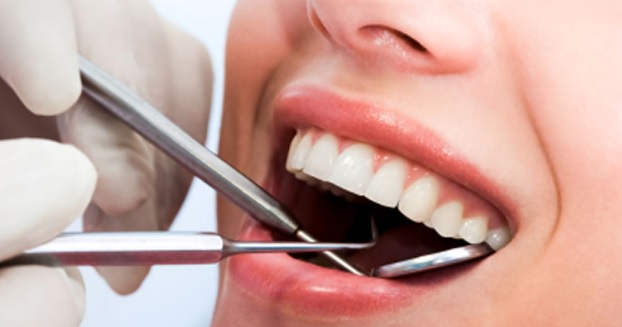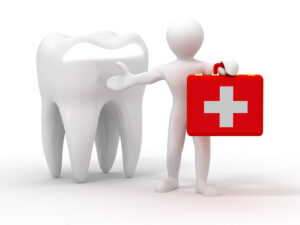Emergency Appointments
Hornsby Emergency Dentist | Hornsby Emergency Dental
Dental emergencies can arise at any time, sometimes stemming from pre-existing dental conditions or often because of accidents or injuries. Such situations can be scary and stressful however having a good understanding of possible causes of pain and home care management until professional treatment is sought can go a long way in improving prognosis of most dental conditions.
Tooth or gum pain can quite easily get in the way of things we love doing most – enjoying a slice of cake with family, engaging in conversations with friends and getting a good night’s rest. Whether sharp and shooting or dull and aching, tooth pain should not be ignored, rather resolved as soon as possible.
At Hornsby Dental, we know that toothaches can develop suddenly and out of nowhere, and we know how debilitating this pain can be sometimes. Injury to the teeth or gums can also be a great source of pain and distressing. Not only do these cause significant pain and distress, dental pain and injury can potentially have a serious effect on your dental and overall health.
Tooth pain is usually an indication that your tooth has become infected, which if ignored, can progress to become an abscess or a life threatening emergency. Any tooth or gum pain or injury should be addressed by a dental professional as soon as possible.
Some common causes of dental pain include:
A condition whereby acid producing bacteria in plaque attack the dental hard tissues. If left untreated, this decay can progress to underlying layers beneath enamel, eventually reaching the nerves and blood supply of the teeth.
This is usually the stage at which pain is experienced, thus emphasising the importance of regular dental check-ups for early detection and prevention.
In the case where bacterial biofilm remains in the mouth for extended periods of time, an inflammatory response can be triggered by the body, causing destruction of the teeth’s supporting structures – those being connective tissue and bone. In advanced stages of gum disease, one may experience bleeding gums, pain and discomfort while biting and chewing, and even mobility of teeth.
- Dental trauma:
If injury to the mouth is encountered, pain may be experienced especially if the teeth have become either knocked out of position or broken. Whether or not there are visible signs of injury to the teeth, it is a good idea to still visit the dentist near you to rule out any signs of trauma that may not be visible without radiographic evidence.
- Tooth wear:
Grinding, acid erosion and abrasive brushing technique can wear away enamel and expose the underlying layer of dentine, resulting in sensitivity to cold foods and drinks. If this is consistently an issue for you and can be identified as such, then it is not considered a dental emergency but conveying this to your dentist/ hygienist at your regular check-up appointment can help in identifying ways of managing symptoms.
Although not all the above are considered dental emergencies, your severity of pain (in the absence of other symptoms such as abscesses or facial swelling) will often be a good indication of whether emergency care is required. Your dental clinician will thoroughly assess your symptoms and examine the problem site to advise you on your best treatment options.
Management of an avulsion (knocked-out tooth) will differ depending on whether it is a primary (baby) or permanent (adult) tooth that is affected. Avulsion of a permanent tooth that results from an accident or injury is considered a dental emergency and the successful outcome of the tooth depends on how quickly a tooth is reimplanted into its socket.
According to the International Association of Dental Traumatology guidelines, immediate first aid for a knocked-out tooth includes:
- Washing the tooth under cold running water for no more than ten seconds while being careful to avoid touching the root.
- Correctly positioning and replanting the tooth into the socket and biting onto a cloth to hold it in place.
- If unable to replant the avulsed tooth, it should be soaked in milk or the patient’s own saliva in a transportable medium and taken to the dental clinic.
- Alternatively, if conscious, the tooth can also be left in the patient’s mouth until assessment by a dentist but never left to soak in water.
Treatment of avulsed or mobile teeth following dental trauma is case specific, however acting in a fast and calm manner until your dental appointment can give the tooth the best possible chance at survival.
Treatment of a chipped or broken tooth will depend on severity of the fracture and how much of the tooth is involved. If possible, the lost fragment should be brought with you to your dental appointment as in some cases, it can be seamlessly bonded onto the fractured tooth.
If injury involves laceration of the oral soft tissue, first aid care involves applying pressure with gauze until haemostasis is achieved or upon arrival to the dental clinic. In the case of a small laceration, your dentist may advise you to keep applying pressure to promote healing, however larger lacerations may require sutures.
If tooth decay and gum disease are not addressed early, the advanced stages of either can result in localised infection around the affected teeth. Emergency dental care treatment should be sought for this because if left untreated, can result in fever, pain, lethargy, mobility and/or tenderness.
In more severe cases, spread of infection to surrounding tissues can result in a diffuse inflammatory response characterised by swelling, redness, and warmth of overlying skin. Other symptoms include pain, fever, malaise, tenderness to palpation, lockjaw, and difficulty swallowing.
If the infection has systemic involvement, airways are compromised, a significant inability to swallow, or severe dehydration is detected, hospital admission may be required.
Our dentists at Hornsby Dental are skilled and equipped to diagnose and treat your emergency dental pain. At Hornsby Dental our gentle and experienced dentists will treat the source of your pain so that you can recover and become pain-free! Not just that, our dentists can discuss a treatment plan with you to prevent avoid any pain recurrences and help you achieve a healthy smile.
Dental emergencies can be stressful events for everyone involved so don’t hesitate to book in a consultation with an emergency dentist Sydney at Hornsby Dental or contact us if you have any questions or concerns regarding emergency dental services available.
If you are looking for a 24 hour (24 hr) dentist, give us a ring, and we will endeavour to fit you in for an emergency dental appointment as soon as possible.
Call one of our friendly staff on (02) 8090 1100 to book an appointment with our emergency dentist Hornsby, or use our online appointment form after hours here –> Book Appointment
We typically respond to appointment form requests within 1-2 hours, but may be up to 8 hours depending on the time of day.
You can also schedule a visit at our other locations:


